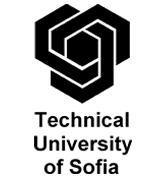The following instutitions have contributed (or currently contributing) either as a host or coorginsers for DeSE, or led one of its special sessions/tracks/symposia since 2008.
 |
King’s College London- University of London- United KingdomFounded within the tradition of the Church of England by the Duke of Wellington and King George IV, who granted our royal charter in 1829, King’s has a proud history of inspiring and supporting those who seek to solve the world’s most pressing problems. From research that led to the discovery of the structure of DNA and informing air pollution awareness and policy to developing life-changing therapies and making maths education available to underrepresented groups – these are some of the ways that we continue to have a transformational impact on society. The University has a long and distinguished international reputation in the humanities, law, science, psychiatry, medicine, dentistry, nursing, and the social sciences. Fourteen people from King’s and its associated institutions have been awarded the Nobel Prize, including Archbishop Emeritus Desmond Tutu for his role in South Africa’s anti-apartheid campaign, and Professor Michael Levitt for his joint work in developing multiscale models for complex chemical systems. Notable alumni include British sprinter and world-record holder Dina Asher-Smith, biophysicist Dr. Rosalind Franklin, famous for her work in X-ray spectroscopy, and acclaimed children’s writer Sir Michael Morpurgo. |
 |
City University, LondonCity University London (informally City University or City) is a public research university located in London, United Kingdom. It was founded in 1894 as the Northampton Institute and became a university in 1966, when it adopted its present name. The Inns of Court School of Law, which merged with City University in 2001, was established in 1852, making it the university’s oldest constituent part. |
 |
The University of Baghdad, IraqUniversity of Baghdad is an integral system that consists of (24) scientific and humanitarian colleges , (3) institutes and (9) firmly-established research centers. Besides it contains 171 fields of specializations. It believes that building Man and developing the society are the basis of having generations who can build the country. The essential purposes of the university are learning, teaching, doing researches and serving the society through providing a stimulating environment of the potentials, qualified university teachers together with curricula that enable the students how to deal with the requirements of the business markets and information technology which support all fields of specializations. In addition the university undertakes to prepare productive and self- reliable graduates. It is also characterized by developing the minds, the scientists and the innovators. It must be open to the society in order to find the scientific solutions and develop the business practices. Furthermore, it emphasizes the integration of the theoretical and practical knowledge and the rehabilitation to accomplish the academic accreditation. |
 |
The Technical University of SofiaThe Technical University of Sofia is the largest technical university in Bulgaria. Founded on 15 October 1945 as part of the Higher Technical School (later renamed to State Polytechnic), it is an independent institution since 1953, when the Polytechnic was divided into four separate technical institutes. It has had its present name and university status since 21 July 1995 and has 14 main faculties based in Sofia, Plovdiv and Sliven, as well as 3 additional ones with education only in foreign languages — German, English and French. |
 |
University of AnbarUniversity of Anbar is one of the Iraqi universities with the mission to be distinction in academic sciences and research to achieve ISO requirements in an open environment on creation and sustainable improvement and to set bridges of communication with universities, institutions and research centers in order to realize the sustainable development. |
 |
Kazan Federal UniversityFounded in 1804 as Kazan Imperial University it is the second oldest among Russian universities. Famous mathematician Nikolai Ivanovich Lobachevsky served there as the rector from 1827 until 1846. In 1925, the university was renamed in honour of its most famous student Vladimir Ilyich Ulyanov (Lenin). The university is known as the birthplace of organic chemistry due to works byAleksandr Butlerov, Vladimir Markovnikov, Aleksandr Arbuzov, and the birthplace ofelectron spin resonance discovered by Evgeny Zavoisky. |
 |
Al Khawarizmi International College – Abu Dhabi (KIC)Founded in 1985, Al Khawarizmi International College (KIC) is the first private institution in the UAE to be accredited by the Ministry of Higher Education and Scientific Research. Since its inception KIC has provided students with a variety of opportunities aiming to advance their education and opening doors for successful future of employment. KIC main focus is on teaching through practical application. KIC aim is to generate graduates who are prepared to meet the demands of current and future challenges. KIC programs provide students with the required theoretical and conceptual knowledge in their fields while equipping them with relevant practical skills and competencies in order for them to engage completely in their chosen careers. |
 |
City University, LondonCity University London (informally City University or City) is a public research university located in London, United Kingdom. It was founded in 1894 as the Northampton Institute and became a university in 1966, when it adopted its present name. The Inns of Court School of Law, which merged with City University in 2001, was established in 1852, making it the university’s oldest constituent part. |
 |
Applied Computing Research GroupThe Applied Computing Research Group is based at the School of Computing, Liverpool John Moores University. |
 |
The Technical University of SofiaThe Technical University of Sofia is the largest technical university in Bulgaria. Founded on 15 October 1945 as part of the Higher Technical School (later renamed to State Polytechnic), it is an independent institution since 1953, when the Polytechnic was divided into four separate technical institutes. It has had its present name and university status since 21 July 1995 and has 14 main faculties based in Sofia, Plovdiv and Sliven, as well as 3 additional ones with education only in foreign languages — German, English and French. |
 |
University of AnbarUniversity of Anbar is one of the Iraqi universities with the mission to be distinction in academic sciences and research to achieve ISO requirements in an open environment on creation and sustainable improvement and to set bridges of communication with universities, institutions and research centers in order to realize the sustainable development. |
 |
Kazan Federal UniversityFounded in 1804 as Kazan Imperial University it is the second oldest among Russian universities. Famous mathematician Nikolai Ivanovich Lobachevsky served there as the rector from 1827 until 1846. In 1925, the university was renamed in honour of its most famous student Vladimir Ilyich Ulyanov (Lenin). The university is known as the birthplace of organic chemistry due to works byAleksandr Butlerov, Vladimir Markovnikov, Aleksandr Arbuzov, and the birthplace ofelectron spin resonance discovered by Evgeny Zavoisky. |

